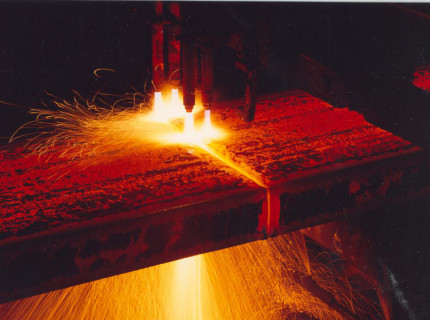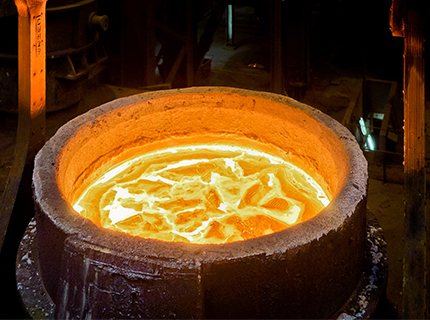Application
The most successful candidates are the ones who:
- Have attached an up-to-date CV that reflects the role they are applying for.
- Include a cover letter highlighting why they would be successful for the role and how they meet the specified requirements and or experience.
Cover Letter
You have one chance to make a first impression. The purpose of a cover letter is to persuade an employer to read your resume.
- Customise your letter so it is specific to the position and company.
- Insert the job title and reference code as advertised, in bold or underlined beneath the salutation.
- Immediately connect with your reader by opening with 'Dear' using the hiring manager's name. You may need to do some research to obtain this information.
- Use 'Dear Sir or Madam' if this is not available.
- You only have a sentence or two to catch the reader's attention, so ensure your opening lines are effective.
- Your closing lines should reassure the employer that you are confident you can contribute to the success of the company and that you look forward to an opportunity to demonstrate this
Curriculum Vitae
A resume is more than a summary of your professional experience, it is a tool with which you market yourself and it can be the key to securing an interview. Keep the format clean and professional and arrange your information so that it is practical and easy to read.
KEEP IT SHORT: The most important factor to remember when preparing a CV is to keep it brief and factual. Make it no more than five pages long (even five pages these days is considered long). Put your work history in chronological order starting with the most recent job first.
MAKE YOUR CV REFLECT THE JOB ADVERTISEMENT: If it asked for five main qualities, make sure they're on the first page. Reflect the words used in the job advertisement. If they talk about "human resources" don't refer to your time in "personnel".
GET IT CHECKED: Ask someone else to critically examine your CV before you submit it. Make sure you choose someone who will give you constructive criticism.
What to Include
- Personal details: write your full name, address, email address and phone number.
- Career or personal objective: state your goal and the skills that make you suitable. For example "I'm looking for a career, preferably outdoors, where I can develop my skills. I'm hardworking, strong, versatile and in good health."
- Key Skills: list your work-related skills and abilities. Some of these might be skills you learnt outside work. You may like to include unpaid, community or family work and say how these skills might suit the job you're applying for.
- Work experience: list the jobs you've had, including part-time and voluntary work, starting with the most recent. Write the job title, the employer's name, the date you started and finished, and a brief description of what your duties included including any achievements.
- Education and training: list your schooling and other training. Give details of technical and trade certificates, and any study or courses you've done.
- Hobbies and interests: (Optional) Give brief details of your hobbies and interests. You could also include any voluntary work you've been involved with.
- Referees: List two to three people who can talk about how well you've worked in the past, but check with them first if it's alright to put them as referees. They may be former employers or someone from work or your community who can vouch for you. Write their name, company or organisation they work for, position and contact details. A future employer may want to contact your referees to verify what you've written in your CV and answer any questions they may have about you.
Interview
The job interview is probably the most important step in the job search process. It's your chance to show the company that you're the best person for the job. The following job interview tips should give you a good head start on the competition!
An interview is a two way conversation and provides an opportunity for both parties to determine 'fit' for the role and organisation.
New Zealand Steel uses behavioural interviews. Behavioural interviews are based on the theory that past performance is a good predictor of future behaviour. A behavioural interview is a more interactive approach and allows the interview panel to get information about real life situations you have faced and how you performed and reacted.
Behavioural questions take the format of "Tell me about a situation..." or "Describe an event where..."
The STAR technique
When asking behavioural questions the panel will be listening for specific answers to the questions. Candidates are encouraged to respond to behavioural questions using the STAR technique. STAR is an anagram for Situation, Task, Action and Result.
- Situation - There should be a brief description or contextual statement of the past situation and environment that you were faced with.
- Tactics/task - You should describe the actual tasks you were responsible for or the tactics you used to carry out the tasks. This clarifies what you were intending to do.
- Action - You should also describe when, where, why and how the task was carried out. This part of the answer should describe your behaviour, skills and expertise.
- Result - This should provide the panel with an outcome that was actually achieved because of your tasks and action.
Quick-fire Guide - The Do's
- Know the exact time and place for the interview, the interviewer's name and their title. Never be late - it is inexcusable!
- Find out all you can about the company by visiting their website and use your networks to provide further insight.
- Refresh your memory regarding details of your past and present employers and your work history in these companies. Take a copy of your resume with you to the interview as a point of reference.
- Look the prospective employer in the eye while you speak to him/her.
- Give yourself time to think about each question posed to you before you respond.
- Make sure you provide the information they need.
- If you do not understand a question, ask for it to be explained or repeated.
- Pay particular attention to how you will describe your most important achievements. Be concise, factual and sincere.
- Be a good listener as well as a talker. Remember to smile!
- Pay close attention to grooming and dress. Standard business attire is normally appropriate.
Quick-fire Guide - The Don't's
- Don't answer questions with a simple Yes or No. Expand wherever possible using previous relevant situations to support your reply.
- Don't ever make derogatory remarks about your present or previous employers. If you are unhappy with them, try to phrase your remarks positively: "my needs and those the company could provide were different".
- Don't enquire about salary, holidays, bonuses or retirement benefits at the initial interview unless asked. However you should know your market value and be prepared to specify your required salary or range.
- Don't panic if there's a silence (even though it may seem like an eternity!). Take a few seconds to think about your answers.





